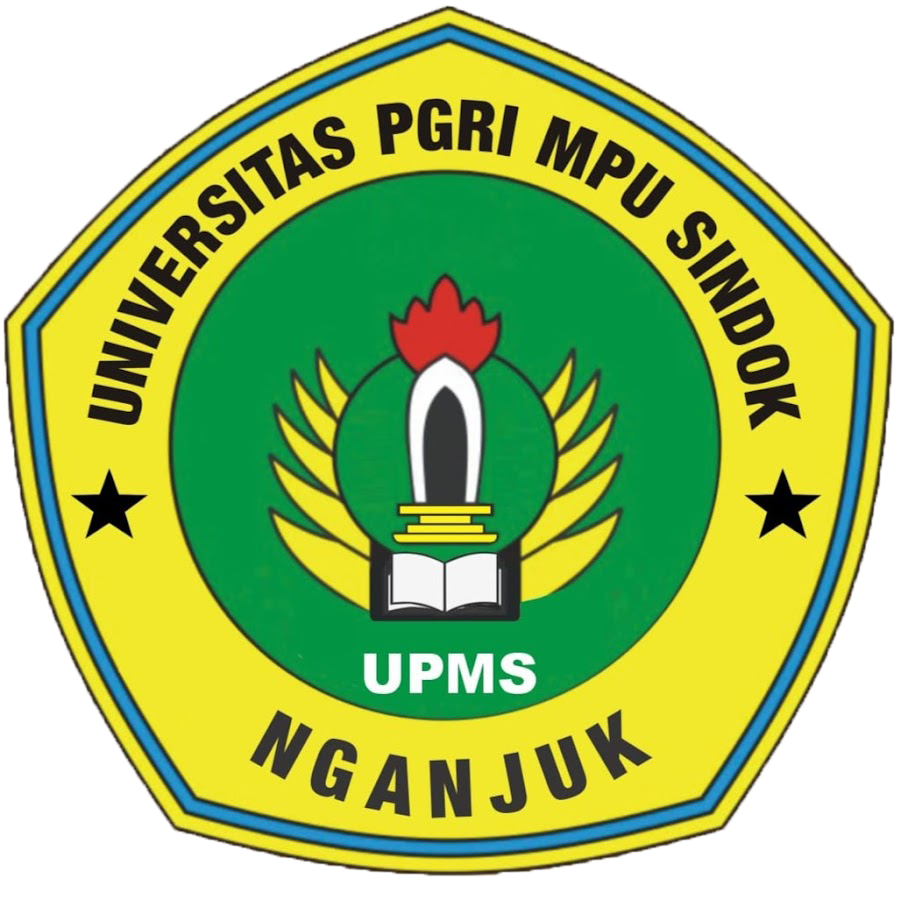Pengaruh Kepercayaan Diri, Integritas dan TI Terhadap Kecurangan Akademik Mahasiswa
DOI:
https://doi.org/10.55587/jla.v5i1.151Kata Kunci:
Self-confidence, student integrity, misuse of information technology, academic fraud behaviorAbstrak
Purpose: This Study aims ti determine (1) To prove whether self-confidence affects academic cheating behavior (2) To prove whether student integrity affects academic cheating behavior (3) To prove whether misuse of information technology affects academic cheating behavior (4) To prove whether learning motivation can strengthen the effect of self-confidence on academic cheating behavior (5) To prove whether learning motivation can strengthen the effect of student integrity on academic cheating behavior (6) To prove whether learning motivation can strengthen the effect of misuse of information technology on academic cheating behavior.
Method: This research uses a quantitative approach. The data used is primary data with data collection methods through distributing questionnaires online using Google Form. The population in this study were accounting students at various universities in Indonesia. The sample obtained was 373 samples. The sampling technique used snowball sampling with the data analysis method in the form of multiple linear regression methods with SPSS 25 software.
Finding: Based on the results of the study, it shows that self-confidence has no significant effect on academic fraud behavior, student integrity has a negative and insignificant effect on academic fraud behavior, misuse of information technology has a positive and significant effect on academic fraud behavior, learning motivation strengthens the relationship between self-confidence and academic fraud behavior, learning motivation strengthens the relationship between student integrity and academic fraud behavior, learning motivation strengthens the relationship between technology misuse and academic fraud behavior,
Novelty: This study adds the variable of self-confidence, as a factor influencing academic cheating behavior, adding the variable of learning motivation as a moderating variable that has not been examined in previous studies.
Referensi
Adriyana, R. (2019). PENGARUH ORIENTASI ETIKA, RASIONALISASI, DAN SELF EFFICACY TERHADAP KECURANGAN AKADEMIK. Jurnal Ekonomi Dan Bisnis, 22(1), 7–12.
Ahmad, J. A. H., Abdullah, A. W., & Rivai, A. (2023). PENGARUH TEKNOLOGI INFORMASI DAN KOMUNIKASI TERHADAP PENDIDIKAN INDONESIA.
Ajzen, I. (1991). The Theory of Planned Behavior.
Aprilia, L., Hertati, L., & Syafitri, L. (2002). PERAN HUMAN CAPITAL, PENGETAHUAN AKUNTANSI, PELATIHAN AKUNTANSI TERHADAP INTEGRITAS MAHASISWA AKUNTANSI. Éditions du Seuil.
Fontanella, A., Sukartini, S., Chandra, N., & Sriyunianti, F. (2020). Kecurangan Akademis Mahasiswa: Kenapa Terjadi dan Apa yang Harus Dilakukan? Jurnal ASET (Akuntansi Riset), 12(1), 155–164. https://doi.org/10.17509/jaset.v12i1.22378
Gusti, I., Ratih, A., Dewi, P., Gde, I., & Wira Pertama, A. (2020). Perilaku Kecurangan Akademik Mahasiswa Akuntansi: Dimensi Fraud Diamond. In Jurnal Ilmiah Akuntansi) • (Vol. 5, Issue 2).
Hendricks, B. (2004). Academic dishonesty: a study in the magnitude of and Academic dishonesty: a study in the magnitude of and justifications for academic dishonesty among college justifications for academic dishonesty among college undergraduate and graduate students undergraduate and graduate students. www.manaraa.com
Hidayah, N. (2018). Analisis Etika Kerja Islam dan Etika Penggunaan Komputer terhadap Ketidaketisan Penggunaan Komputer oleh Pengguna Teknologi Informasi di UMKM Kabupaten Bantul. JESI (Jurnal Ekonomi Syariah Indonesia), 8(1), 59. https://doi.org/10.21927/jesi.2018.8(1).59-73
Juliardi, D., Agung Sudarto, T., & Taufiqi, R. at. (2021). Fraud triangle, misuse of information technology and student integrity toward the academic cheating of UM student during the pandemic Covid-19. International Journal of Research in Business and Social Science (2147- 4478), 10(6), 329–339. https://doi.org/10.20525/ijrbs.v10i6.1343
Kartika Ningrum, F., & Maria, E. (2022). DETERMINAN KECURANGAN AKADEMIK MAHASISWA AKUNTANSI DI MASA PANDEMI COVID-19. Media Riset Akuntansi, Auditing & Informasi, 22(2), 253–270. https://doi.org/10.25105/mraai.v22i2.13799
Ni Made Dwi Surya Rahayu, Komang Krishna Yogantara, & Laras Oktaviani. (2023). PENGARUH MOTIVASI BELAJAR, PENYALAHGUNAAN TEKNOLOGI INFORMASI, DAN INTEGRITAS MAHASISWA TERHADAP PERILAKU KECURANGAN AKADEMIK MAHASISWA AKUNTANSI. Journal Research of Accounting, 5(1), 17–25. https://doi.org/10.51713/jarac.v5i1.100
Pertama, I. G. A. W., & Anggiriawan, I. P. B. (2022). Analisis Faktor-Faktor yang Mendasari Perilaku Kecurangan Akademik. Ekonika : Jurnal Ekonomi Universitas Kadiri, 7(2), 184–195. http://ojs.unik-kediri.ac.id/index.php/ekonika
Prasetya, A., Retnasary, M., & Azhar, D. A. (2022). POLA PERILAKU BERMEDIA SOSIAL NETIZEN INDONESIA MENYIKAPI PEMBERITAAN VIRAL DI MEDIA SOSIAL. In Desain JOURNAL OF DIGITAL COMMUNICATION AND DESIGN (JDCODE) (Vol. 1, Issue 1).
Salsabilla, Y., Uyun, M., & Info, A. (2023). Opportunities and Rationality Against Academic Cheating Peluang dan Rasionalitas Terhadap Kecurangan Akademik. Jurnal Imiah Psikologi, 11(2), 219–224. https://doi.org/10.30872/psikoborneo.v11i2
Septia Dewi, N. K. P., Sumadi, N. K., & Hutnaleontina, P. N. (2022). PENGARUH MOTIVASI BELAJAR, INTEGRITAS INDIVIDU DAN PROKRASTINASI TERHADAP KECURANGAN AKADEMIK. Hita Akuntansi Dan Keuangan, 3(3), 306–321. https://doi.org/10.32795/hak.v3i3.2926
Sumartono, Sutisman, E., Pattiasina, V., & Usman, R. (2021). PENGARUH MOTIVASI BELAJAR, PENYALAHGUNAAN TEKNOLOGI INFROMASI, INTEGRITAS MAHASISWA DAN PRESSURE TERHADAP PERILAKU KECURANGAN AKADEMIK MAHASISWA AKUNTANSI UNIVERSITAS YAPIS PAPUA.
Suyanto, S., Desinta Azizah Pramesti, & Fuadhillah Kirana Putri. (2024). Perception, Self Efficacy, Students’ Career Interest In Taxation: Family Environment As A Moderating. Jurnal Riset Akuntansi Dan Bisnis Airlangga, 9(1), 38–61. https://doi.org/10.20473/jraba.v9i1.56695
Tanjung, Z., & Amelia, S. H. (2017). MENUMBUHKAN KEPERCAYAAN DIRI SISWA. 2(2), 1–4. http://jurnal.iicet.org/index.php/jrti
Wardani, D. K., & Farin, I. (2023). Niat Melakukan Whistleblowing Kecurangan Akademik: Moralitas Individu dan Pemahaman Tri Pantangan. Jurnal Ilmiah Universitas Batanghari Jambi, 23(1), 276. https://doi.org/10.33087/jiubj.v23i1.3287
Warni, P., & Margunani, M. (2022). Pengaruh Dimensi dalam Fraud Diamond dan Penyalahgunaan Teknologi Informasi Terhadap Perilaku Kecurangan Akademik. Business and Accounting Education Journal, 3(1), 36–49. https://doi.org/10.15294/baej.v3i1.59275
Wiranata, K., & Basaria, D. (2020). GAMBARAN INTEGRITAS AKADEMIK PADA MAHASISWA BARU UNIVERSITAS X. Versi Cetak), 4(1), 254–263. https://doi.org/10.24912/jmishumsen.v4i1.7059
Unduhan
Diterbitkan
Cara Mengutip
Terbitan
Bagian
Lisensi
Hak Cipta (c) 2025 Jurnal Literasi Akuntansi

Artikel ini berlisensiCreative Commons Attribution-NonCommercial-ShareAlike 4.0 International License.













